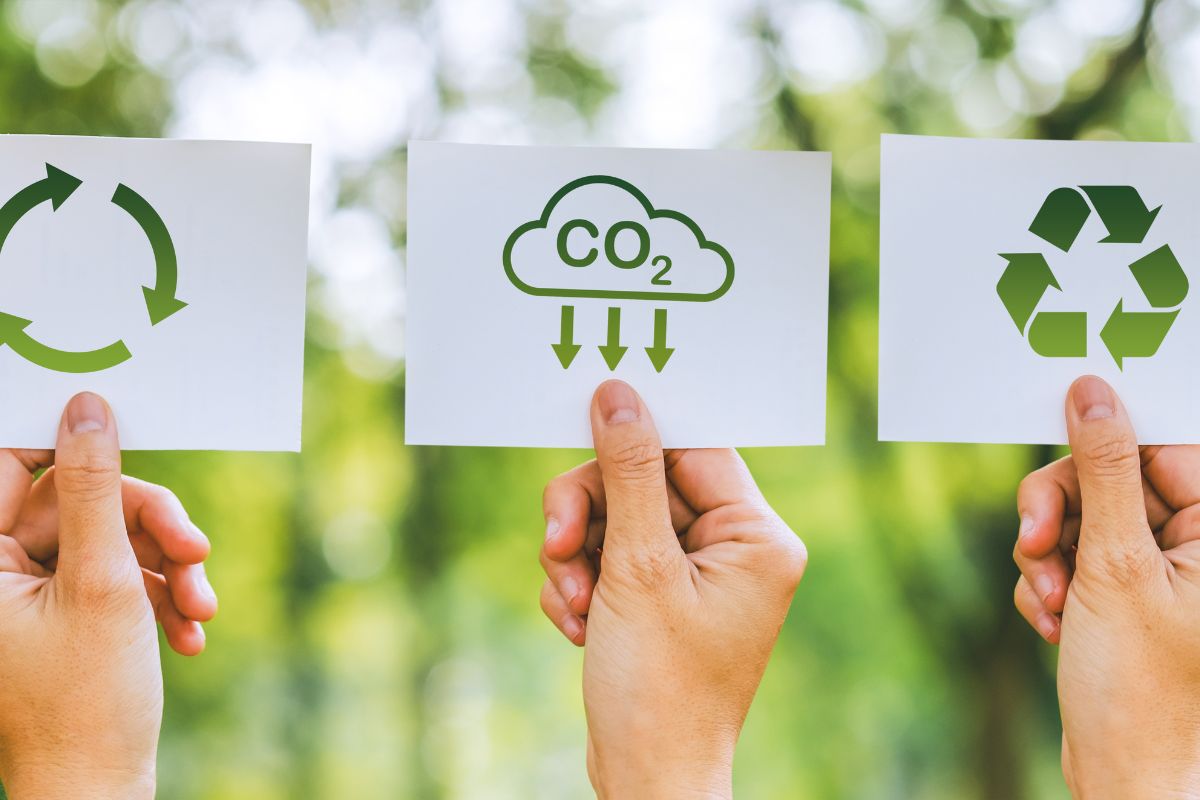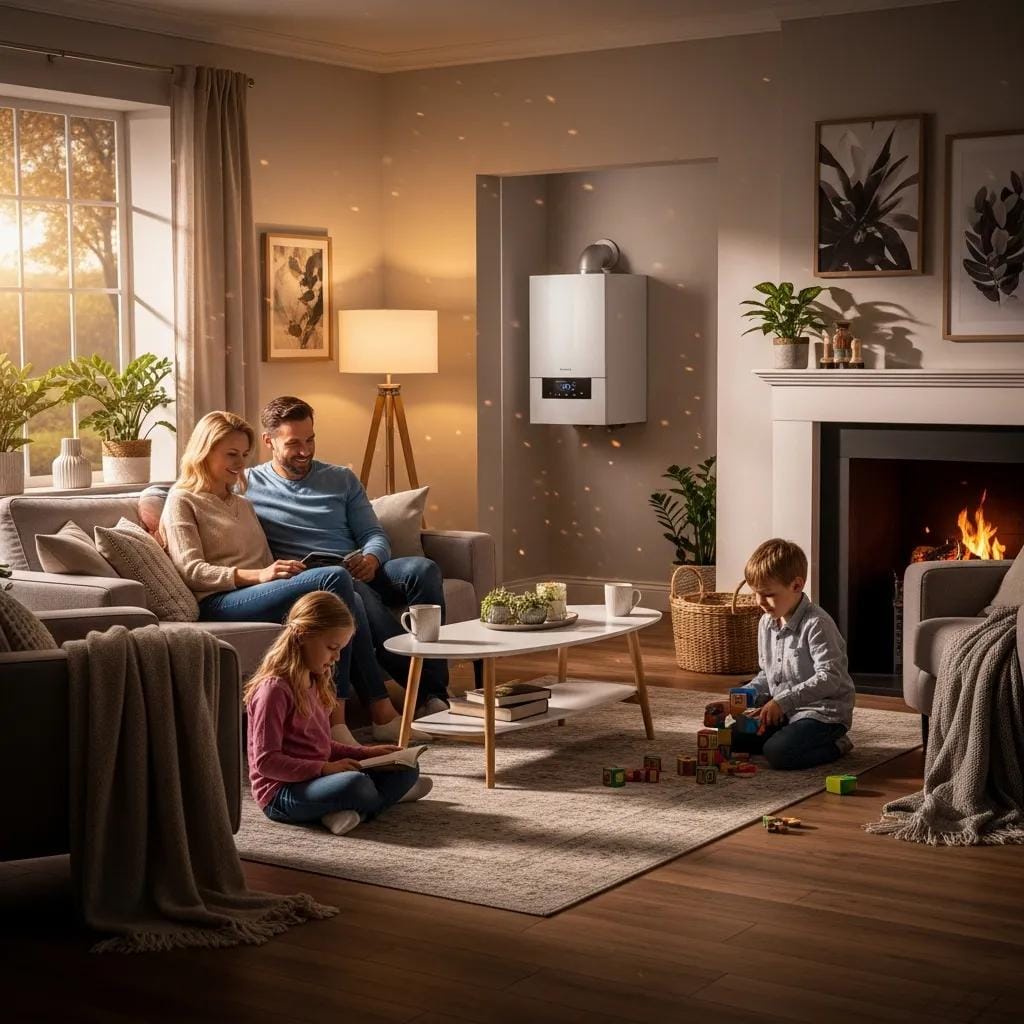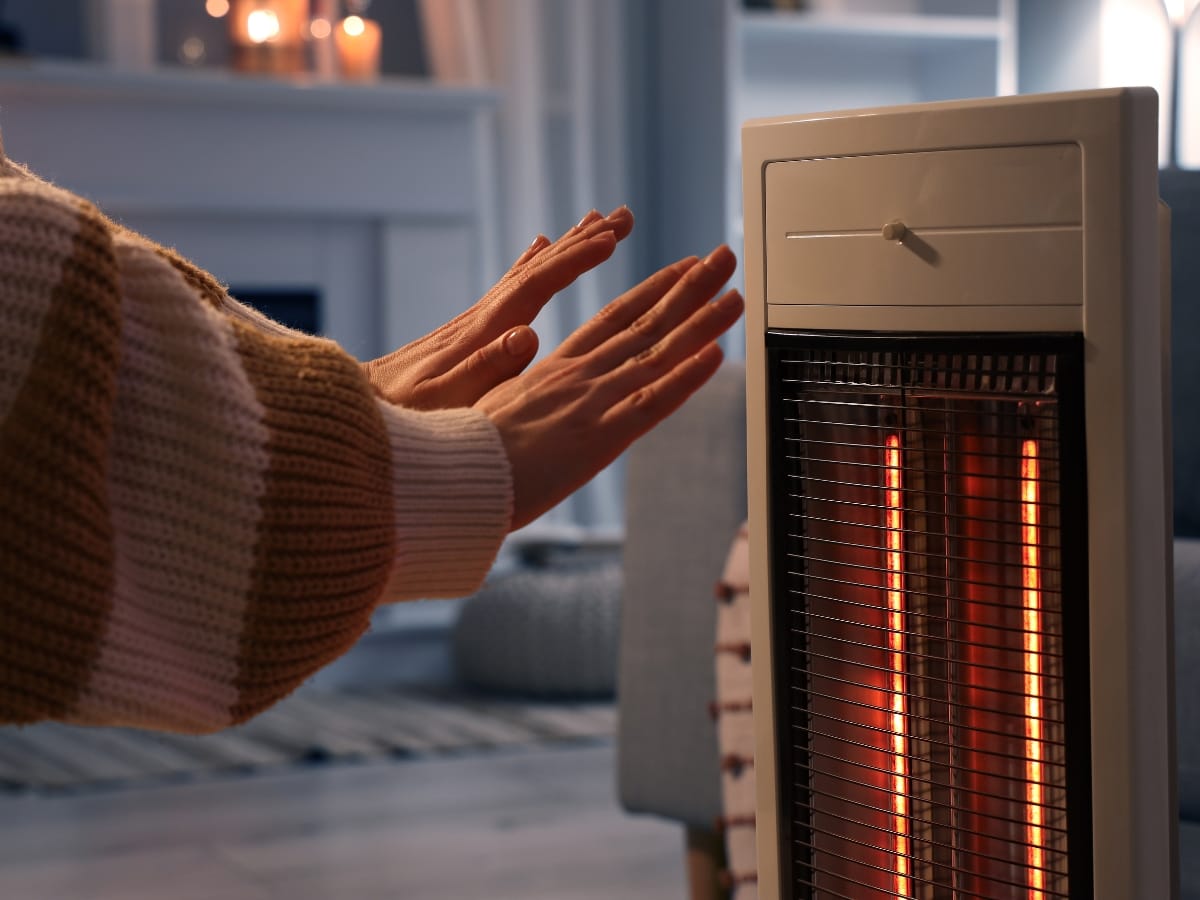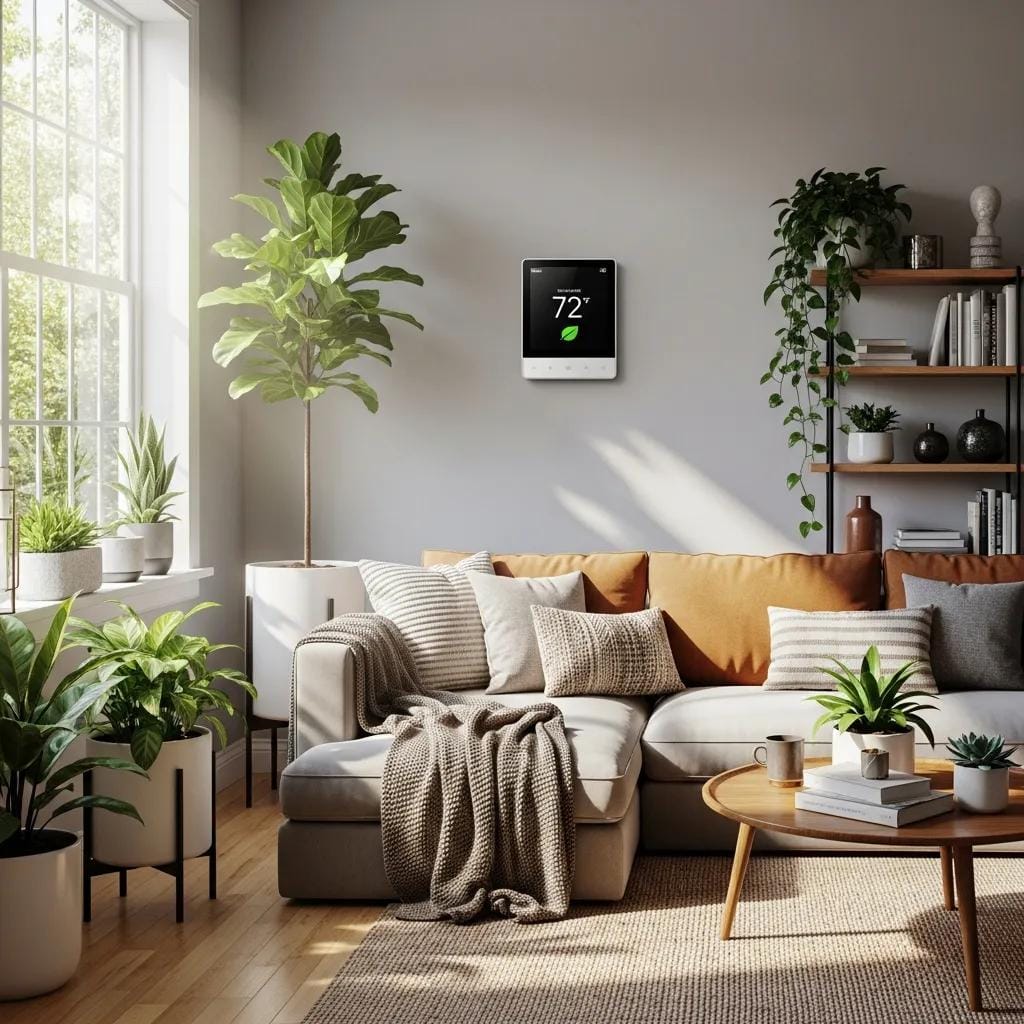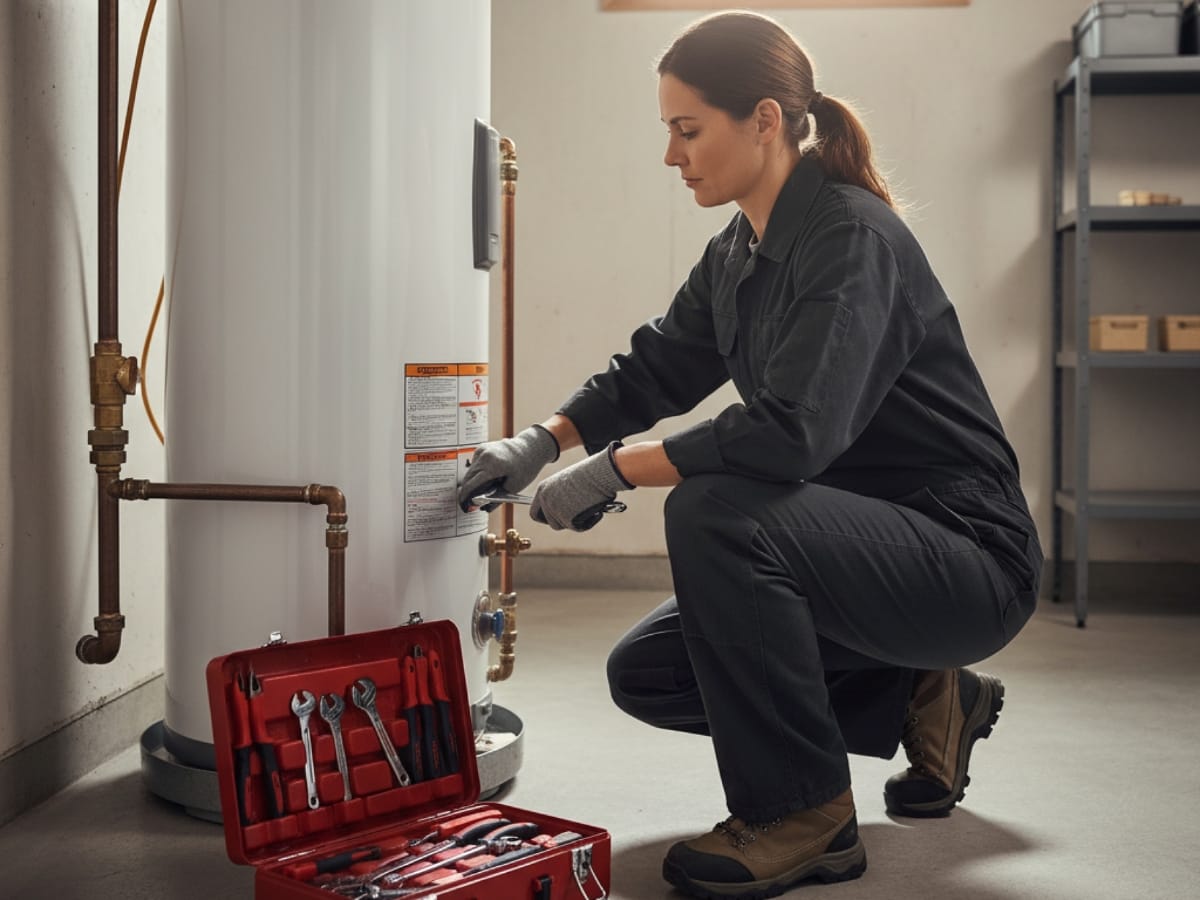Climate change significantly impacts HVAC systems, leading to increased demand for cooling, extreme weather challenges, energy efficiency concerns, adaptation needs, air quality considerations, and regulatory changes. To mitigate their impact on climate change, HVAC systems must evolve to be more energy-efficient, resilient to extreme weather, and aligned with sustainable practices.
HVAC Systems & Climate Change
What Is Climate Change?
Climate change refers to the long-term alteration of temperature and weather patterns on Earth, primarily caused by human activities such as burning fossil fuels, deforestation, and industrial processes. These activities release greenhouse gases like carbon dioxide (CO2) into the atmosphere, trapping heat and leading to global warming. This warming trend has significant implications for HVAC (Heating, Ventilation, and Air Conditioning) systems in buildings.
The effects of climate change directly impact HVAC system performance and efficiency. Rising temperatures increase the demand for cooling, straining air conditioning systems.
Extreme weather events like heat waves or cold snaps can also affect system operation, leading to increased energy consumption and potential breakdowns. Additionally, changes in humidity levels can impact indoor air quality and comfort, requiring adjustments in HVAC settings and equipment.
Importance of HVAC Systems in the Fight Against Climate Change
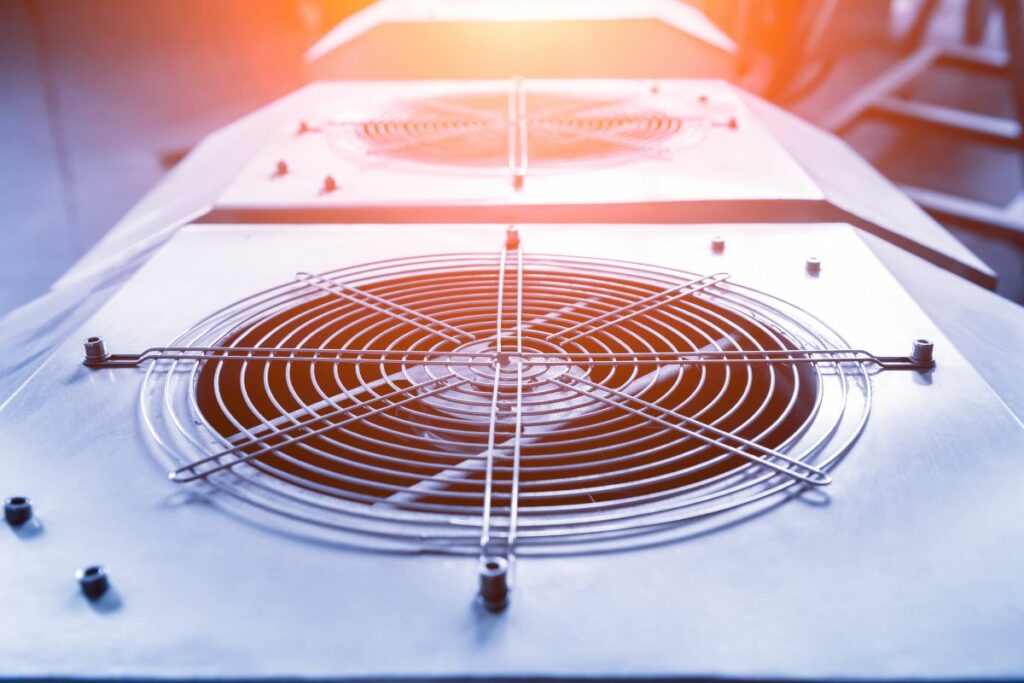
HVAC systems contribute significantly to energy consumption in buildings and account for a substantial portion of greenhouse gas emissions. These systems traditionally rely on fossil fuels or electricity generated from non-renewable sources, leading to environmental concerns. However, advancements in technology have introduced energy-efficient HVAC solutions that minimize environmental impact while ensuring optimal performance.
You can significantly reduce your carbon footprint by transitioning to energy-efficient HVAC systems. These systems are designed to operate more efficiently, using less energy to achieve the same level of heating, cooling, and ventilation. As a result, they contribute to lower greenhouse gas emissions, helping to mitigate climate change on a broader scale.
Benefits of Energy-Efficient HVAC Technologies
Energy-efficient HVAC technologies offer a range of benefits that go beyond environmental sustainability:
- Reduced Energy Consumption: High-efficiency HVAC systems use innovative designs and components to minimize energy waste. This translates to lower energy bills for homeowners and businesses while reducing the demand for fossil fuels or non-renewable energy sources.
- Lower Emissions: Energy-efficient HVAC systems produce fewer greenhouse gas emissions by consuming less energy. This is particularly impactful in regions where electricity generation relies heavily on fossil fuels. Transitioning to energy-efficient HVAC solutions contributes to cleaner air and a healthier environment for everyone.
- Improved Indoor Air Quality: Many modern energy-efficient HVAC systems incorporate advanced filtration and ventilation technologies. These features enhance indoor comfort and improve indoor air quality by removing pollutants, allergens, and contaminants. This is especially beneficial for individuals with respiratory conditions or allergies.
- Long-Term Cost Savings: Although the initial cost of energy-efficient HVAC equipment may be higher than that of traditional systems, the long-term savings are considerable. Decreased energy bills, lower maintenance expenses, and possible incentives or rebates for adopting energy-efficient upgrades lead to substantial financial advantages throughout the system’s lifespan.
Embracing energy-efficient HVAC technologies isn’t just about reducing environmental impact; it’s also a strategic investment that offers immediate and long-term advantages for homeowners, businesses, and the planet as a whole.
Assessing Your Current HVAC System’s Energy Efficiency
Begin by evaluating the energy efficiency of your existing HVAC system. Consider factors such as the age of the equipment, its efficiency rating, and any visible signs of wear or inefficiency. An energy audit conducted by a professional can provide valuable insights into your system’s performance and areas for improvement.
Once you’ve assessed your system, take proactive steps to enhance energy efficiency:
- Upgrade to Energy-Efficient Equipment: Consider replacing outdated HVAC components with modern, energy-efficient models. Look for systems with high SEER (Seasonal Energy Efficiency Ratio) ratings for air conditioners and heat pumps and AFUE (Annual Fuel Utilization Efficiency) ratings for furnaces. Energy Star-certified equipment meets stringent efficiency standards and can significantly reduce energy consumption.
- Optimize System Settings: Adjust thermostat settings to maximize energy savings without compromising comfort. Programmable thermostats allow you to schedule temperature adjustments based on your daily routine, reducing energy usage during periods of lower occupancy.
- Improve Insulation: Proper insulation in your home or building prevents energy loss and reduces the workload on your HVAC system. Ensure doors, windows, and ductwork are well-sealed to maintain indoor comfort efficiently.
Regular HVAC maintenance is essential for ensuring your HVAC system operates at peak efficiency:
- Schedule Routine Maintenance: Arrange for professional HVAC maintenance at least once a year to inspect, clean, and tune up your system. This proactive approach helps identify potential issues early and keeps your system running smoothly.
- Replace Air Filters: Regularly replace or clean air filters to maintain optimal airflow and indoor air quality. Clogged filters restrict airflow, forcing your HVAC system to work harder and consume more energy.
- Monitor Energy Usage: Use smart thermostats or energy monitoring devices to monitor your HVAC system’s energy consumption. Analyzing usage patterns can highlight areas where you can further optimize efficiency and reduce energy waste.
Emerging Technologies and Innovations in Green HVAC Systems
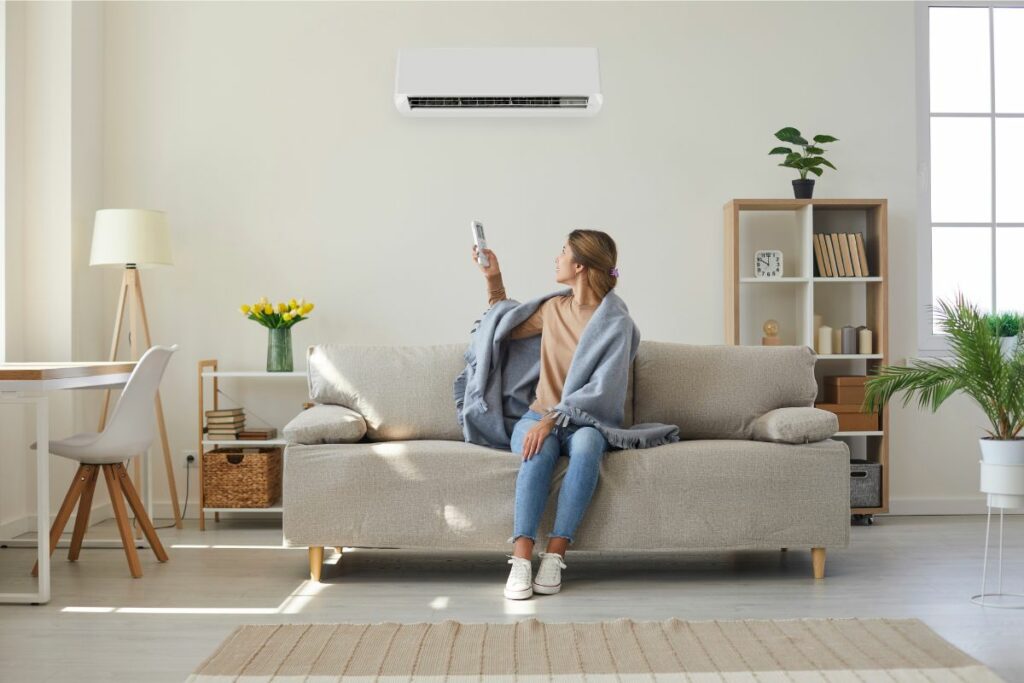
The future of HVAC (Heating, Ventilation, and Air Conditioning) technology is marked by exciting advancements in sustainability and efficiency. Here’s a glimpse into emerging trends and their potential impact:
- Smart HVAC Systems: Integrating smart HVAC technologies such as IoT (Internet of Things) sensors and automation allows HVAC systems to adapt dynamically to environmental conditions and occupancy patterns. This optimization leads to reduced energy consumption and improved comfort.
- Heat Pump Innovations: Advances in heat pump technology, including geothermal and air-source heat pumps, offer highly efficient heating and cooling solutions. These systems harness renewable energy sources, contributing to lower carbon emissions and greater energy savings.
- Energy Storage Solutions: Battery storage systems and thermal energy storage (TES) technologies enable HVAC systems to store excess energy during off-peak hours for use during high-demand periods. This enhances energy management and grid flexibility.
- Green Refrigerants: A key focus is the development of eco-friendly refrigerants with lower global warming potential (GWP) and ozone depletion potential (ODP). Transitioning to these refrigerants reduces environmental impact without compromising performance.
Government Incentives and Programs for Green HVAC Solutions
Government incentives and programs play a significant role in promoting the adoption of energy-efficient HVAC (Heating, Ventilation, and Air Conditioning) systems. Here’s an overview of these initiatives and how you can access and benefit from them:
- Tax Credits and Rebates: Many governments offer tax credits or rebates to incentivize the installation of energy-efficient HVAC equipment. These incentives can significantly offset the initial cost of purchasing and installing energy-efficient systems.
- Grants and Funding Programs: Some government agencies provide grants or funding opportunities for energy efficiency projects, including HVAC upgrades. These grants may be available to homeowners, businesses, or institutions looking to implement sustainable HVAC solutions.
- Energy Efficiency Standards and Regulations: Governments often establish energy efficiency standards and regulations for HVAC equipment. Compliance with these standards may qualify you for incentives or demonstrate eligibility for certain programs.
- Utility Rebate Programs: Utility companies frequently offer rebate programs for customers who upgrade to energy-efficient HVAC systems. These rebates can provide financial incentives and encourage the adoption of energy-saving technologies.
Adapting Your HVAC System for a Greener Future
Transitioning to a greener future with your HVAC system involves evaluating its environmental impact and prioritizing energy efficiency and sustainability. Start by looking for systems with high energy efficiency ratings like SEER (Seasonal Energy Efficiency Ratio) and AFUE (Annual Fuel Utilization Efficiency), and seek certifications from reputable organizations like Energy Star for validation of sustainable operation.
Consider the full life cycle of HVAC systems, including manufacturing, installation, operation, and disposal. Use carbon footprint calculators to estimate greenhouse gas emissions. Encourage others to prioritize energy efficiency through education, access to government incentives, consulting with HVAC professionals, and considering long-term benefits despite initial costs.
Ready to take the next step towards a greener and more sustainable HVAC system? Our team of experts is here to guide you. CoolPro Heating & Cooling is committed to introducing energy-efficient solutions that improve performance and reduce environmental impact. If you’re looking to boost the efficiency of your HVAC system while lessening your carbon footprint, consider CoolPro Heating & Cooling as your reliable ally.
Contact us today at [email protected] or call 770-694-6232 to schedule a consultation. Our team of experts is ready to provide tailored advice and solutions to meet your specific needs. Choose CoolPro Heating & Cooling and take a proactive step towards a more energy-efficient and sustainable tomorrow.

